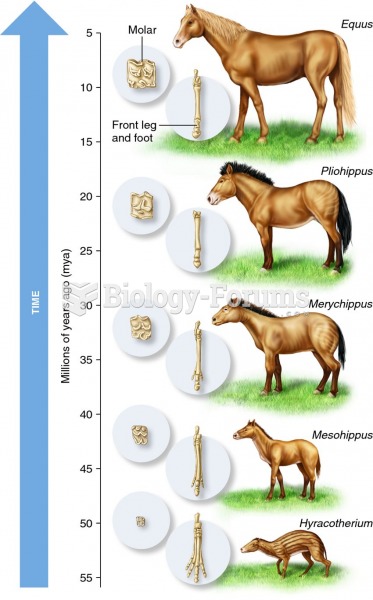|
|
|
The FDA recognizes 118 routes of administration.
It is believed that humans initially contracted crabs from gorillas about 3 million years ago from either sleeping in gorilla nests or eating the apes.
Cancer has been around as long as humankind, but only in the second half of the twentieth century did the number of cancer cases explode.
A cataract is a clouding of the eyes' natural lens. As we age, some clouding of the lens may occur. The first sign of a cataract is usually blurry vision. Although glasses and other visual aids may at first help a person with cataracts, surgery may become inevitable. Cataract surgery is very successful in restoring vision, and it is the most frequently performed surgery in the United States.
If all the neurons in the human body were lined up, they would stretch more than 600 miles.







